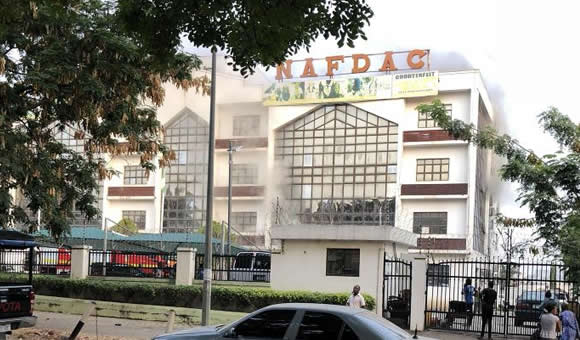Clearing agents at Nigerian ports have voiced their concerns about the indefinite strike initiated by employees of the National Agency for Food and Drug Administration and Control (NAFDAC). The strike arose from unresolved issues regarding promotion and welfare, which have remained a contentious topic among the NAFDAC workers. According to reports from PUNCH Online, the Medical and Health Workers Union of Nigeria expressed dissatisfaction with NAFDAC’s Director-General, Prof. Mojisola Adeyeye, for attempting to use a WhatsApp call to address the strike, instead of holding a face-to-face meeting. This situation has raised the tension between the union members and the agency, particularly as the Director-General’s absence from the country became apparent during this dialogue.
In a letter issued on October 13, the union clarified the nature of communication attempted by Prof. Adeyeye, stating that there was no meeting but rather a phone call while she was in the United States. The union felt that relying on digital communication for such essential negotiations demonstrated a lack of seriousness about the workers’ grievances. Instead of resolving the matter, the ongoing back-and-forth has exacerbated frustrations among the more than 2,000 NAFDAC staff and has left crucial matters unaddressed. Moreover, the absence of the Director-General during critical negotiations has intensified feelings of disregard and disrespect towards the workforce, which has now decided to take a stand through strike action.
The strike’s ramifications have been significant for the maritime and logistics sector, particularly impacting clearing agents involved in the handling of shipments for products that fall under NAFDAC’s regulatory watch, such as pharmaceuticals, cosmetics, and chemicals. Olatoye Otubade, a clearing agent, highlighted the disruptions caused by halted inspections and clearance processes. The strike has left many containers stranded at port terminals, which results in accruing daily charges, including shipping costs and terminal fees. This cascading effect highlights the interconnected nature of logistics operations and how a disruption in a regulatory body can trigger economic turmoil for manufacturers and the wider economy.
Moreover, Seun, another clearing agent, reiterated the operational paralysis at the ports, citing locked offices and an inability to perform necessary tasks. He pointed out the urgent need for resolution to the strike, emphasizing its detrimental impacts on not just clearing agents but the entire supply chain. The lack of movement in the ports has not only resulted in financial loss for those within the logistics sector but also poses potential risks for the availability of regulated products in the Nigerian market. This chaotic situation underscores the importance of efficient regulatory frameworks in protecting consumer safety and facilitating smooth trade processes.
In light of the ongoing strike, NAFDAC’s Resident Media Consultant, Sayo Akintola, declared that efforts are being made at the ministerial level to address the workers’ demands. He noted that the issues have been escalated to the Head of Service, indicating a bureaucratic response to union grievances rather than a swift resolution. However, Akintola also cautioned that the union should be mindful of the implications of their absence from work, which may inadvertently enable the smuggling of contraband products into the country. Therefore, he urged for a balanced perspective that would take into account the broader community and national interests at stake.
The situation remains precarious as both parties grapple with their respective concerns, each advocating for their positions in a standoff that reflects broader labor relations issues within Nigeria. The NAFDAC strike has exposed vulnerabilities at the intersection of regulation and commerce, highlighting how unresolved labor disputes can lead to widespread economic implications. Ultimately, finding a resolution that reinstates operations at NAFDAC and addresses the workers’ concerns will be pivotal for restoring normalcy in the sector and ensuring that critical health and safety regulations continue to be enforced effectively.


